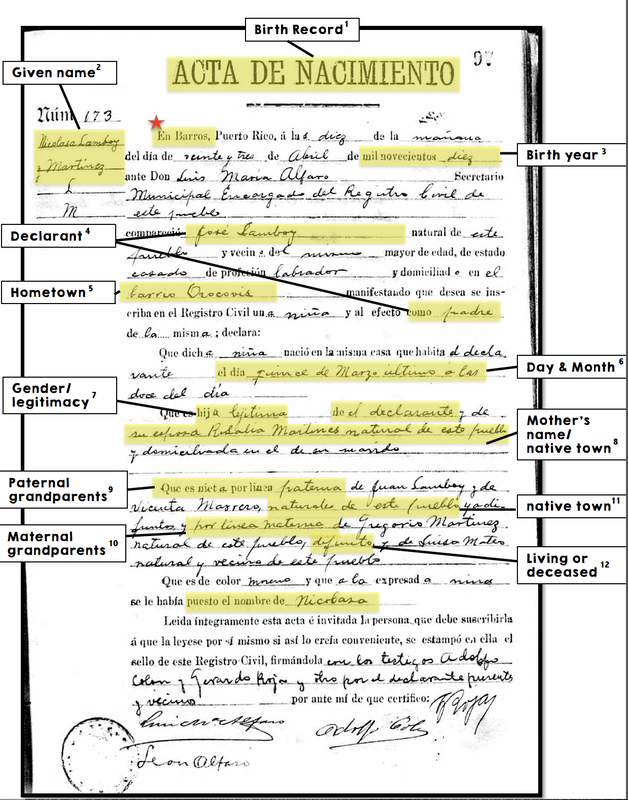- 1940 United States Federal Census Free: 134,484,652: 1910 United States Federal Census: 93,627,758: Puerto Rico, U.S., Social and Population Schedules, 1935-1936.
- Puerto Rico, Registro Central de Esclavos, 1872 (in Spanish) Register of people who were enslaved in Puerto Rico in 1872; Puerto Rico, Records of Foreigners, 1815-1845 - documents are in Spanish, handwritten, and not indexed. Puerto Rico, Records of Foreign Residents, 1815-1845. Includes naturalization records for foreigners in Puerto Rico.
- Historical Resourcespuerto Rican Genealogy Sites
- Historical Resourcespuerto Rican Genealogy History
- Historical Resourcespuerto Rican Genealogy Society

About The Archives Free Search. O ur mission is to help all researchers make genealogical and historical discoveries. ArchivesPuertoRico.com provides search services to anyone seeking genealogical, ancestral and/or historical information specific to Puerto Rico.
Births in Puerto Rico often occurred at home. A parent or other relative would have to register the birth at a municipal office, and this is where we get the 'Acta de nacimiento', or birth register. Below is a glossary of the terms and phrases shown in these documents:

The beginning of the birth register should indicate in what municipality/town the birth was registered. Depending on where your ancestor was born, their birth record might show a different municipality than their adult home address.
The text of the birth register document reads as follows:
Register of Birth
In the [name of municipality/town], at [numerical hour of the day] on the [numerical day] of the [month] of the [year spelled out in words], before [name of Judge], Judge of the Municipal District of [name of District], and [name of Secretary], Secretary, appeared [name of declarant], of [hometown (country, if not Puerto Rico)], adult, of [marital status], [profession], and resident of [street address and number], in order to register a [daughter / son], and to do that as [relationship to child]:
That said [daughter / son] was born at the home of the declarant on [xx day of xx month].
That this child is the [legitimate / acknowledged / illegitimate] child of the declarant and [information about other parent; this section might include information on grandparents, as well].
That this child is [granddaughter/grandson] of [paternal grandfather's name], [aged xx years / deceased], and [maternal grandfather's name], [aged xx years / deceased].
And that this child has been given the name [name of child].
All of which was been witnessed by [names and titles of witnesses].
Sealed by the Municipal Court Judge, declarant, and witnesses.
Some useful phrases in translation:
mil novecientos = 19__ (rarely, 'mil ochocientos' = 18__)
comparecio = appears
Historical Resourcespuerto Rican Genealogy Sites

legitimo = legitimate
natural = illegitimate

ya difunto = deceased
Historical Resourcespuerto Rican Genealogy History
de __ años de edad = is __ years old
Historical Resourcespuerto Rican Genealogy Society
Some records also list the race of the child, which literally translate as: blanca/o = white; mestiza/o = literally 'mixed', typically refers to a person of Spanish and Native American ancestry; mulata/o = a person with one parent of African descent and one parent of European descent; negra/o = black; parda/o = brown; triqueña/o = 'three cultures'.
